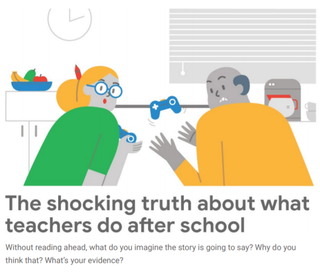Google unveils activities to increase children's cyber awareness
Google's digital skills curriculum for kids expands tasks for disinformation, phishing and more

Google announced an expansion to its 'Be Internet Awesome' programme on Monday with six new activities designed to teach children basic internet skills and baseline knowledge of the technologies that underpin online threats.
Be Internet Awesome is a two-year-old curriculum designed in collaboration with Anne Collier and Faith Rogow PhD, experts in internet safety and teaching respectively. The new tasks utilise gamification to teach children skills such as how to identify fake news, disinformation, phishing attacks, what bots are and how to verify information.
"Kids today need a guide to the internet and media just as they need instruction on other topics," said Amy Mascott, founder of teachmama.com in a Google blog post. "We need help teaching them about credible sources, the power of words and images and more importantly, how to be smart and savvy when seeing different media while browsing the web."
"We need the right tools and resources to help kids make the most of technology, and while good digital safety and citizenship resources exist for families, more can be done for media literacy," she added.
The overarching theme of the new activities, according to the Be Internet Awesome curriculum, is: "Its important for kids to understand that the content they find online isnt necessarily true or reliable, and could involve malicious efforts to steal their information or identity."
"Phishing and other online scams encourage internet users of all ages to respond to pitches from people they dont know and sometimes even from people pretending to be someone they do know," the curriculum noted.
The curriculum sets out goals for educators or parents to achieve with each activity/lesson and offers questions to ask children throughout to guide and enhance their engagement with the task.
Get the ITPro. daily newsletter
Receive our latest news, industry updates, featured resources and more. Sign up today to receive our FREE report on AI cyber crime & security - newly updated for 2024.
The phishing activity, much like the interactive web-based activity launched for adults a few months ago, offers different examples with hidden clues as to whether they're real or fake examples of web activity. The example below teaches children to look for trusted URLs.

As it becomes more acceptable to give children devices at earlier ages than most adults today would have been allowed, children are being exposed to bots and non-human voices more and at earlier ages. Children are taught in the 'About those bots' task how AI works and how to interact with chatbots at home and sometimes at school.
Google also likens spotting fake news to playing spot the difference, a popular game given to children to test their visual analysis of a specific task. Disinformation could potentially be harmful to an impressionable child so learning how to spot a sensational headline and how to verify a source using critical thinking could be the difference between a child dismissing a harmful story and growing up with skewed beliefs.

The new set of activities concludes with a new interactive, browser-based game in Google's Interland game series called Reality River. The game sees the child (or very serious IT Pro journalists) control a character trying to navigate their way across a river full of pesky phishers. Questions are presented with multiple choice answers and the player gets to safely advance across the river with correct answers which test what they've learned throughout the curriculum.
The Be Internet Awesome curriculum for little 'Internauts' is aimed at in-school educators and parents alike, is free and available in 10 different languages.
"I encourage parents to take advantage of these resources and the new activities on media literacy," said Mascott. "Let's not only teach kids, but also inspire, educate and empower families to make tech work better for them as well."

Connor Jones has been at the forefront of global cyber security news coverage for the past few years, breaking developments on major stories such as LockBit’s ransomware attack on Royal Mail International, and many others. He has also made sporadic appearances on the ITPro Podcast discussing topics from home desk setups all the way to hacking systems using prosthetic limbs. He has a master’s degree in Magazine Journalism from the University of Sheffield, and has previously written for the likes of Red Bull Esports and UNILAD tech during his career that started in 2015.




